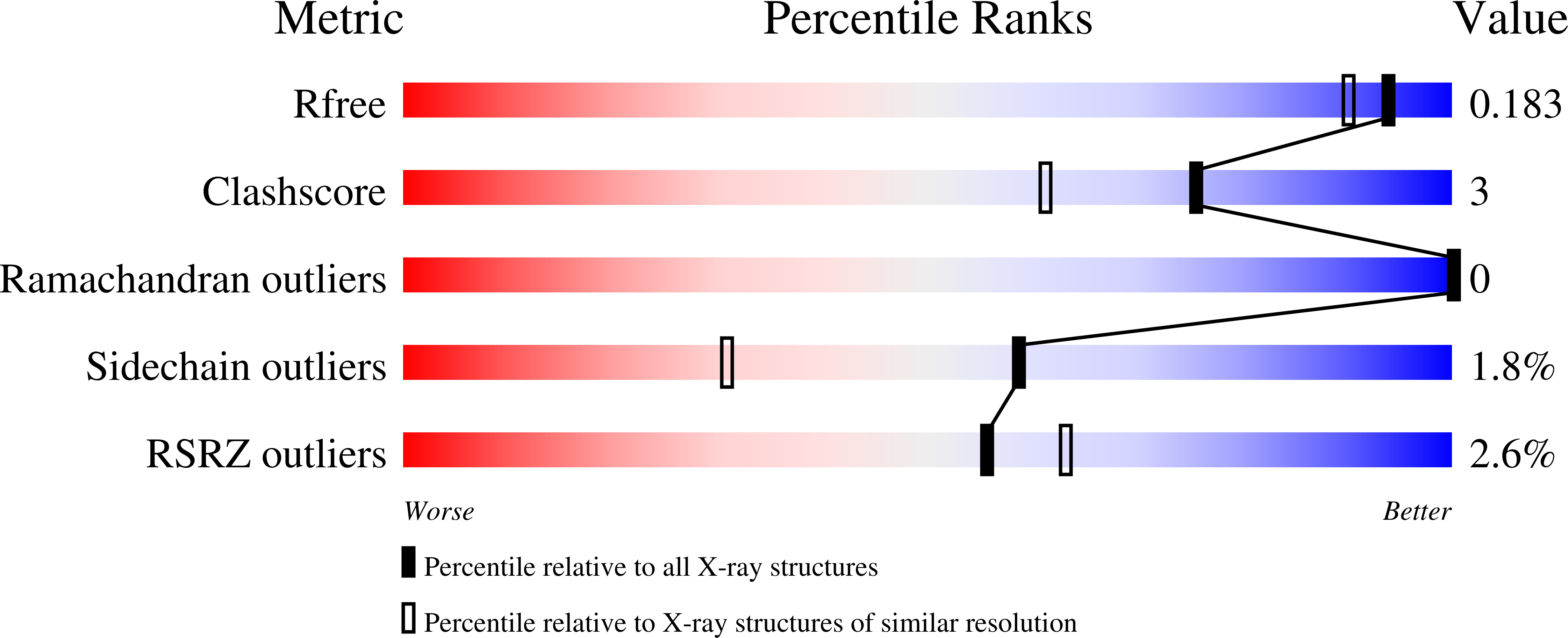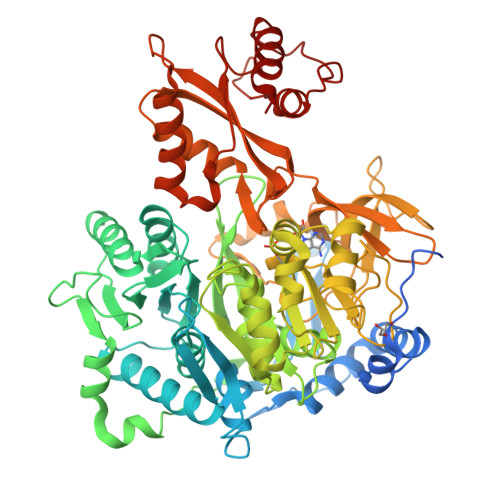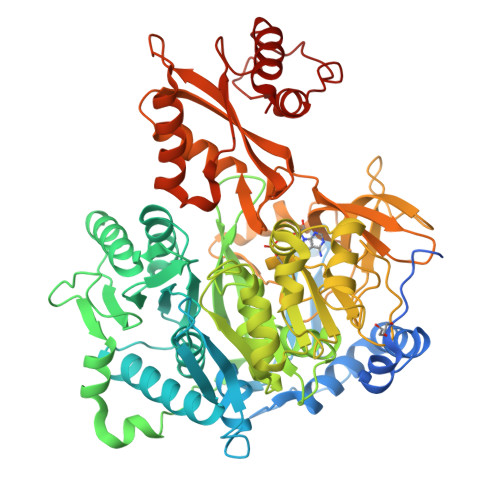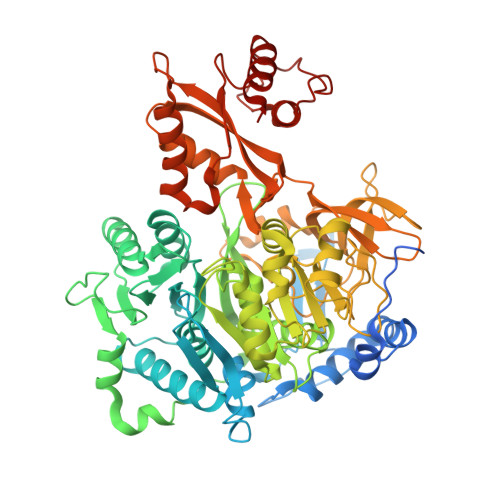A single Leishmania adenylate-forming enzyme of the ANL superfamily generates both acetyl- and acetoacetyl-CoA.
Jezewski, A.J., Esan, T.E., Propp, J., Fuller, A.J., Daraji, D.G., Lail 3rd, C., Staker, B.L., Woodward, E.L., Liu, L., Battaile, K.P., Lovell, S., Hagen, T.J., Krysan, D.J.(2024) J Biological Chem 300: 107879-107879
- PubMed: 39395803
- DOI: https://doi.org/10.1016/j.jbc.2024.107879
- Primary Citation of Related Structures:
8SF3, 8U2R, 8U2S, 8U2T, 8U2U, 8V4R - PubMed Abstract:
Leishmania, a protozoan parasite, is responsible for significant morbidity and mortality worldwide, manifesting as cutaneous, mucocutaneous, and visceral leishmaniasis. These diseases pose a substantial burden, especially in impoverished regions with limited access to effective medical treatments. Current therapies are toxic, have low efficacy, and face growing resistance. Understanding the metabolic pathways of Leishmania, particularly those differing from its host, can unveil potential therapeutic targets. In this study, we investigated the acetyl-CoA synthetase (ACS) enzyme from Leishmania infantum (LiAcs1), which, unlike many organisms, also exhibits acetoacetyl-CoA synthetase (KBC) activity. This dual functionality is unique among ANL superfamily enzymes and crucial for the parasite's reliance on leucine catabolism, energy production and sterol biosynthesis. Our biochemical characterization of LiAcs1 revealed its ability to utilize both acetate and acetoacetate substrates. Additionally, LiAcs1 displayed a distinct CoA substrate inhibition pattern, partially alleviated by acetoacetate. Structural analysis provided insights into the substrate binding flexibility of LiAcs1, highlighting a more promiscuous substrate pocket compared to other ACS or KBC-specific enzymes. Substrate mimetics elucidated its ability to accommodate both small and large AMP-ester derivatives, contributing to its dual ACS/KBC functionality. These findings not only advance our understanding of Leishmania metabolism but also present LiAcs1 as a promising drug target. The dual functionality of LiAcs1 underscores the potential for developing selective inhibitors that could disrupt critical metabolic pathways across Leishmania spp. as it appears this enzyme is highly conserved across this genus. This paves the way for developing novel effective treatments against this devastating disease.
Organizational Affiliation:
Department of Pediatrics Carver College of Medicine, University of Iowa, Iowa City, IA 52242.




















